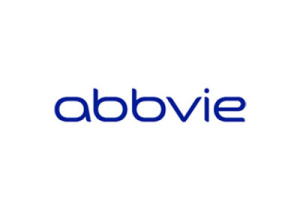
Emil Fitoš
-
How Companies Think When They Choose the Path of Digital Transformation | Jarná ITAPA 2024
Companies that choose digital transformation face numerous challenges. However, we should not underestimate their ability to navigate these challenges and make the right decisions. Based on a survey conducted by the Slovak Centre for Digital Innovations (SCDI) with a sample of over 100 companies, we aim to identify the priorities of Slovak firms. We will examine what they have already invested in and what they plan to invest in the future. We will also explore their attitudes towards advanced technologies, including artificial intelligence. Additionally, we will look at how closely they associate digital technologies with green transformation. Alongside statistics, SCDI has gathered a wealth of opinions and perspectives that can shed light on how companies perceive their needs. We can compare these with the support offered from public resources, such as the Recovery and Resilience Plan or EU structural funds.
-
DISCUSSION "New priorities of Slovak eGovernment" | Jarná ITAPA 2024
-
Discussion "New technologies, new opportunities" | ITAPA AI & Robotics 2024
-
Technologies and resources for a green future | Jesenná ITAPA 2023
Kamil Šaško, Ministry of Economy SR (invited) -
Green technologies and their importance | Jesenná ITAPA 2023
-
Recommendations for effective digitization (or What we do not recommend to the new government) | Jesenná ITAPA 2023
Each new set receives a lot of advice when starting. Officials and advisers point to important documents co-authored by them. Lobbyists show that they know how to help and generate ideas to wait. Those who felt left out point out that things need to be done differently. Someone has projects and measures in their drawer that were unjustly neglected in the past. Taking into account all possible goals and conflicting interests has led in the recent past to unrealistic promises, unfulfilled expectations, micro-management, but also to ignoring strategic matters, decisions to add gas and at the same time step on the brakes. A responsible manager should look at the capacities that will realistically be available to him, compare them with the demands placed on him and ask himself the question "WHAT NOT TO DO?". In his contribution, Emil Fitoš will talk about which priorities are not really priorities, which activities are a waste of energy and which promises are better not to make. -
Competitive Environment in the State IT | Jarná ITAPA 2023
One of the goals of the Program Statement of the Government of the Slovak Republic, which recently ended its activities, was: "The Government of the Slovak Republic will introduce innovative forms of procurement in IT (agile procurement, open framework agreements - the so-called digital marketplace) in order to support competition, following the example of countries that are leaders in informatization .” From today's perspective, it is clear that the number of competitions has increased, but the number of companies that win them has decreased. We are witnessing a growing lack of interest of IT companies in public contracts. The reason is a combination of phenomena - procurement methods, the practice of setting preliminary contract values, irremovable or even growing bureaucracy. It was not possible to attract a large number of new companies to the public sector. It was not even possible to increase the competences of the customer state by fundamentally increasing the number of computer scientists on the state side. New phenomena are emerging here, such as predatory offers that aim far below the preliminary value of the order. The state is a high-risk customer, and IT companies that can establish themselves in other markets are increasingly doing so. The way out of this condition will not be easy. The first prerequisite for embarking on it is to stop transforming the relationship between the IT sector and public administration into politics, admit reality and start behaving in a managerial and professional manner.
-
DISCUSSION "Why is it difficult to become good?" | Jesenná ITAPA 2022
Slovakia consistently lags behind in international DESI comparisons. We tried to invest large funds. It didn't help. Management has been centralized, but we still don't see any dramatic shift. The level of project control has increased, but we are still in a bad position in the ranking of international indexes. Why? What are we doing wrong? We want to be successful! We have a right to it! How to fill it?
VIDEOZÁZNAM
-
DISCUSSION "What can Slovak AI offer?" | Jesenná ITAPA 2022
Leaders of Slovak artificial intelligence present interesting projects, cooperation, solutions in the field of artificial intelligence.
Emil Fitoš, AISlovakIA
Tomáš Vinař, Comenius University in Bratislava
Ivan Budinská, Slovak academy of sciences
Matej Pecháč, TACHYUM
VIDEOZÁZNAM -
Diskusia "Nákup v štátnom IT" | Jesenná ITAPA 2022
ERIK HEVESI, MIRDI: "Even in public procurement it is possible to achieve good results, only both parties have to want it."
Jozef Graňačka, Slovensko IT
Erik Hevesi, MIRDI SR
Emil Fitoš, ITAS
Peter Kubovič, Office for Public Procurement
Marián Marek, ITAS
VIDEOZÁZNAM -
DISCUSSION "Industry Transformation" | Jesenná ITAPA 2022
Artur Bobovnický, SIEA
Emil Fitoš, ITAS
Marwan Oghli, TACHYUM
Juraj Rumanovský, FORTINET
VIDEOZÁZNAM -
Fighters | Jarná ITAPA 2022
-
DISCUSSION on Industry 4.0 | Jarná ITAPA 2022
-
DISCUSSION on Industry 4.0 | Jarná ITAPA 2022
-
DISCUSSION | Medzinárodný kongres ITAPA 2021: Ako sa stať najlepším?
-
Speakers | Medzinárodný kongres ITAPA 2021: Ako sa stať najlepším?
-
Presentation | Medzinárodný kongres ITAPA 2021: Ako sa stať najlepším?
-
DISCUSSION | Jarná ITAPA 2021
panel speakers
Emil Fitoš, ITAS
-
How is digital transformation different from computerization, as we have known it so far? | Medzinárodný kongres ITAPA 2020
Digitization has significantly changed entire industries - financial services, retail and wholesale, energy and telecommunications. Under the name Industry 4.0, the digitization of industry is underway. In all these sectors, there have been fundamental changes in processes, organizational structures, human resources and customer service. Why don't we see the same benefits of IT in public administration, even though the suppliers are the same companies?
We still have a circulation of documents based on the paper world. Electronic processes also copy the paper world. Decisions must be sought and substantiated. All applications must be approved, the scope of automation is zero. The data are still largely isolated. Agendas are also payable to the department, and information systems faithfully copy this fact. If everyone does the same thing, they just use a computer instead of paper, in fact too little will change.
The potential of the digital age needs to be fully exploited. It also means transforming processes in public administration and introducing separate electronic tools and procedures, independent and unrelated to paper procedures and tools. An analogy can be, for example, banks, where the same operation is performed differently at the branch and differently through internet banking, while the result for the client is the same.
-
Discussion Round Table | Medzinárodný kongres ITAPA 2020
Invited guests:
Marek Antal (MIRRRI), Pavel Karel (NASES), Vladimír Dzurilla (MV ČR), Emil Fitoš (ITAS), Pavol Frič (DITEC), Gabriel Lachmann (Slovensko.Digital), Rastislav Janota (NCKB SK-CERT), Pavol Miroššay (Slovensko IT)




















